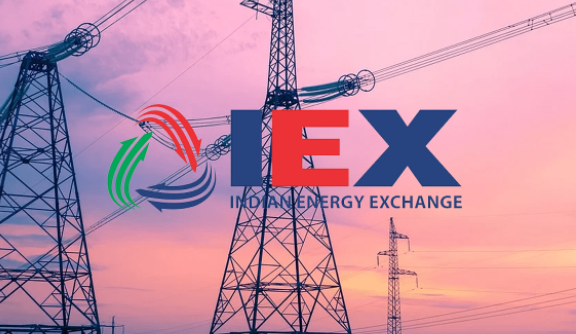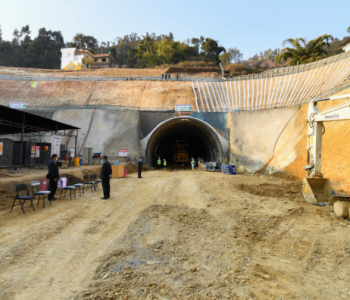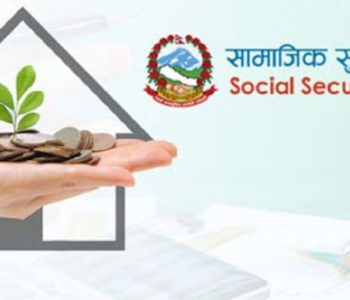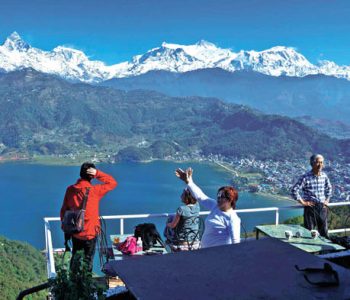Nepal’s electricity exports to India fetch higher prices amid rising demand

KATHMANDU: Electricity exported from Nepal to India has seen an increase in prices. Electricity exported from Nepal to India is now being sold at a higher price due to increased demand in the Indian open market. Nepali electricity is being sold for up to INR 10 (approximately NPR 16) per unit in the Indian market.
Nepal has received approval to sell 452 megawatts of electricity in the Indian market. The Electricity Authority has stated that the average selling price per unit of electricity in India is around INR 10 due to increased electricity demand caused by rising temperatures.
Currently, Nepal has been producing about 452 megawatts of electricity for export. The Electricity Authority has been exporting electricity to India since Kartik of 2078 B.S. Electricity sales began with the production of 39 megawatts of electricity from two hydropower projects.
In Jestha of 2079 B.S., approval was obtained to sell electricity at a competitive rate in the Indian market for an additional 364 megawatts from six more projects. In Kartik of 2079 B.S., approval was obtained to export two more hydropower projects.
Along with this, the Electricity Authority has received permission to sell a total of 452 megawatts of electricity in India from 10 projects. No additional permission has been granted by India for the sale of electricity from new projects.
To facilitate energy trade with India, Nepal had previously made changes to the Cross-Border Electricity Trade (CBET) Rules, which allowed electricity purchase and sale in the Indian market to be decided half an hour in advance.
These changes enabled countries like Nepal, Bhutan, Bangladesh, etc., to buy and sell electricity in the Indian Energy Exchange (IEX) in real-time. Before this, electricity was traded in the market just one day ahead (Day-Ahead) and the prices were determined every half an hour, not in real-time.
Previously, electricity sales were conducted on a Day-Ahead basis in the IEX. Based on the Market Clearing Price determined by the electricity system, competitive rates were set for each unit of electricity, which could be bought and sold from 12:00 AM to 12:00 AM, i.e., 24 hours.
Now, with the approval of sales from 10 projects, the Electricity Authority has constructed 23.28 megawatts of Trishuli Hydropower, 14.55 megawatts of Devighat, 21.44 megawatts of Chilime, and 22.8 megawatts of Solu Khola, built by Green Venture, among others, to sell electricity in the Indian market.
These 10 projects will reduce the power shortage by 3 percent and provide 451.7 megawatts of electricity. Nepal has not received permission to sell 1010 megawatts of electricity from 18 other projects. Approval for these projects has been delayed due to requirements for additional information, including investment, investors, and bank details.
India has expressed concerns about the complicated process of obtaining approval for electricity sales from 18 Nepali projects in the Indian market. Even though the approval for these projects has been pending, India has accused Nepali investors of monopolizing the country’s water resources.
In addition to the long-term power trade agreement, the Central Government of India has also been given permission to import 200 megawatts of electricity from the Middle East and 300 megawatts from Bihar. India is also worried about the delay in signing long-term agreements for electricity trade.
Although Nepal had handed over the responsibility for the construction of two hydropower projects during Prime Minister Pushpa Kamal Dahal’s visit to India, there has been no signing of the agreement so far.
Currently, Indian companies have been awarded the construction of 4,639 megawatts of electricity from four hydropower projects in Nepal. Even though agreements have been signed for two more hydropower projects during Dahal’s visit to India, the big seven projects in Nepal are now under the control of Indian companies.
The target is to produce 4,639 megawatts of electricity from these projects. The directive of not selling electricity in other countries without the permission of the Electricity Authority has created tension in Nepal’s water resources, as India has almost complete control over Nepali water sources.
Despite the integration of the energy trade in the guidelines for import/export (cross-border) electricity in 2018, Nepal has not been able to secure an energy trade agreement with India. The Electricity Authority has not given approval for the 1010-megawatt electricity sale from projects submitted since Baisakh of 2078 B.S. to the present.













Facebook Comment